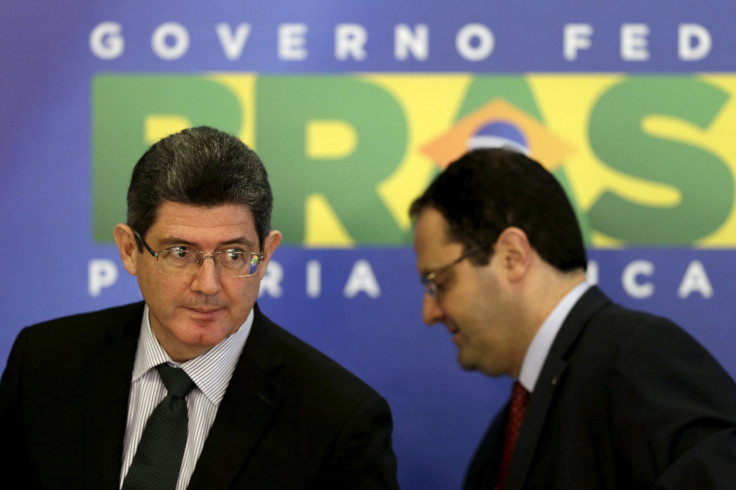
Brazil is officially in recession, according to economic indicators released in the second-quarter. On Monday, government leaders submitted a trimmed-down budget that’s still expected to add at least R$ 30 billion to the deficit, according to Folha de São Paulo. There’s no one reason why the economy has tanked; the current nosedive is a confluence of factors, a “perfect storm” that’s affecting much of Latin America, from Perú to Patagonia. Exports are down, as Brazil’s main trading partners like China and Argentina have felt the effects of a growing global slowdown.
These reasons might have caused a small bump in GDP individually, not a full-blown recession. But put them together and they’ve broken a long record of Brazilian growth, interrupting economic improvements that since the 1990s have transformed the country in generally raised the standard of living. Reuters’ Joao Augusto De Castro Neves says it’s too early to write off the country and puts forward cautious optimism for a government that has dealt with some similar crises in the past. Others argue that Brazil can buck the dent in its growth and power through. But right now the Brazilian economy looks bleak. Here is why.
Personal consumption has dropped: if exports are down and Brazilians aren’t buying, there’s not much place to go for recapturing GDP
Investment has decreased: Brazil hasn’t just lost consumer confidence. Investors are more skeptical as well. Moody’s has already slashed the company’s credit rating , and some fear that its investment rating may be next.
Government spending has leveled off: While not a full-blown austerity package, government spending isn’t going up enough to offset drops in other sectors of the economy.
Real has lost 10 percent of its value against the U.S. dollar in the past month: imports have always been expensive, but now Brazilians money isn’t worth as much and the cost of goods that aren’t produced in Brazil is even higher.
Unemployment is nearly at a five year high . Even though the government is hoping to buoy wages with an increase in the minimum salary, there are less jobs to keep afloat.
Political crisis: if unemployment and inflation weren’t enough to chill consumers and investors, the record-breaking unpopularity of president Dilma Rousseff has put Brazil’s prospect on ice. Calls for impeachment (and a military coup) can only make people more nervous about the future.
China: is seems like every major economy is feeling the ripple effect from China, from South Korea to the U.S. That might actually serve as a silver lining -- if China can bounce back, that will be one less thorn in Brazil’s side.
© 2024 Latin Times. All rights reserved. Do not reproduce without permission.